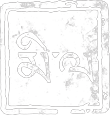I am still alone with my pain
only you feel pain…
/ / Arlington, Massachusetts
When the chatter of others irritates me, and I become angry because I lose focus on what I’m working on – which is important to me and to these others around me, who feels pain? Only I feel the pain and anger, and when I lash out angrily at my co-workers, they do not feel pain. They may even wonder why I am angry or upset.
When my friend says something carelessly, while trapped in her own pain, and I misinterpret her words, who really feels the pain when feelings of resentment, anger, betrayal, or sadness overcome me? She can experience her own perceptions of my actions as a result, but she does not feel the turmoil in my own mind. Only I feel my pain.
Pain encourages loneliness. We feel pain in solitude, as if it were utterly incomprehensible to every other person on the planet. Somehow, we feel as if the emotion of happiness and joy is sharable, and in joy we feel closer to our loved ones.
But pain, pain encourages us to withdraw, to see only ourselves – our boundaries withdraw, our warmth cools, our outpouring of love ceases, and in preservation we react as if those around us were threats.
As a practitioner of Buddhism, I can see the process in my mind as I choose how to respond to statements that further an argument. I am not yet able to reliably break the habitual tendency to react as if I have been insulted or attacked, but I can see the struggle in my mind – to respond in kind, or to respond with peace and perhaps love.
As if I were an observer outside a boxing ring, I watch as the angrier part of me beats my reasoned, compassionate side and I act according to my anger.
And in those moments afterward, I am still alone with my pain, as much as I would like to extend an olive branch, the pain is still mine alone. I can see and understand the pain of those around me, but it feels distant. Pain makes us selfish, makes us inconsiderate to others.
Yet we all feel pain and suffering. It is as common as joy and happiness, and as universal! How do we keep responding habitually when it causes us more pain and wounds us even more?
Every action we take is the result of a choice. There are no automatic responses in the human mind that affect anything more than a few muscle groups. Every action we take is the result of our own choice; we must accept the responsibilities for our choices, good or bad. This is the law of karma.
Understand these two truths: First, when you feel painful emotion, when it controls you, only you feel that pain – you create pain for yourself, you wound yourself. No-one else can be blamed for your mental pain. They can only be blamed for their actions.
Second: Every person feels pain. Suffering is universal. When we understand that nobody is immune to suffering, we begin to feel compassion grow when we are in pain. We begin to grow more equaniminous even as we hurt.
May these thoughts assist you toward the end of suffering.
